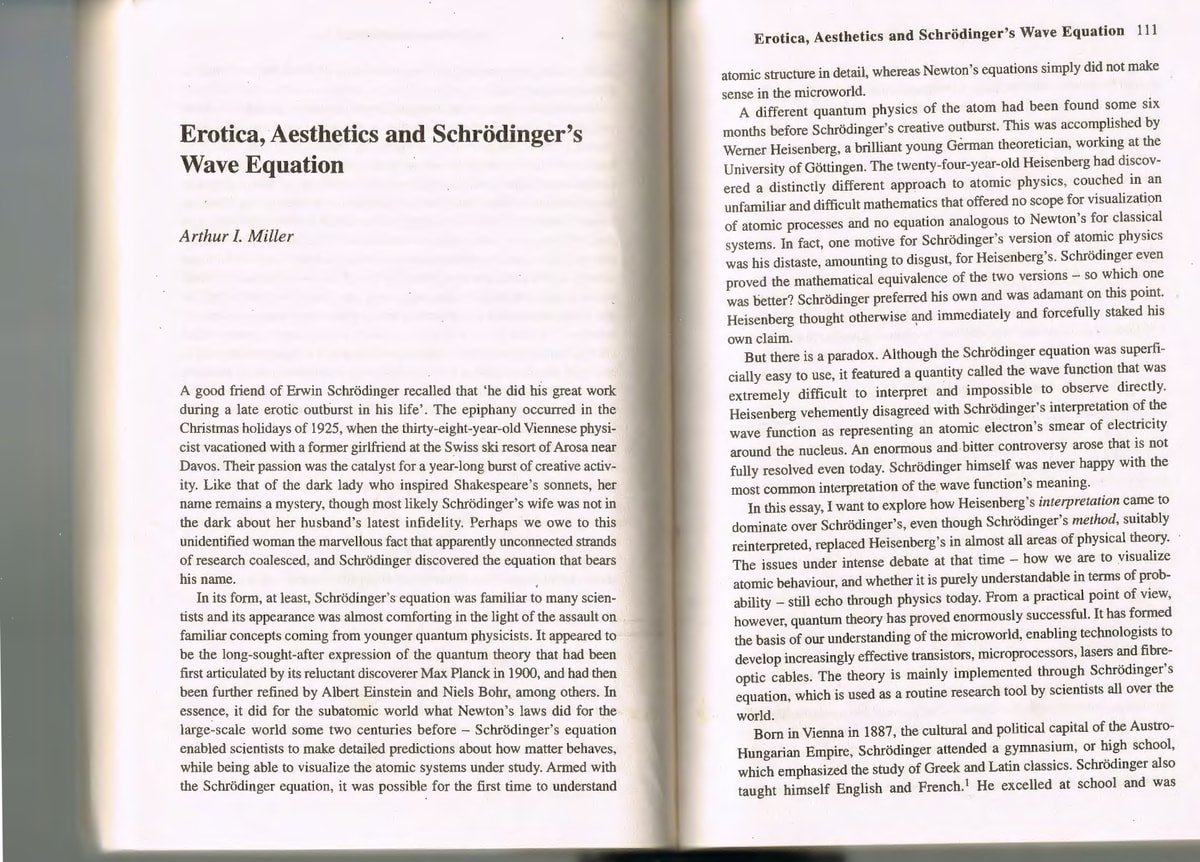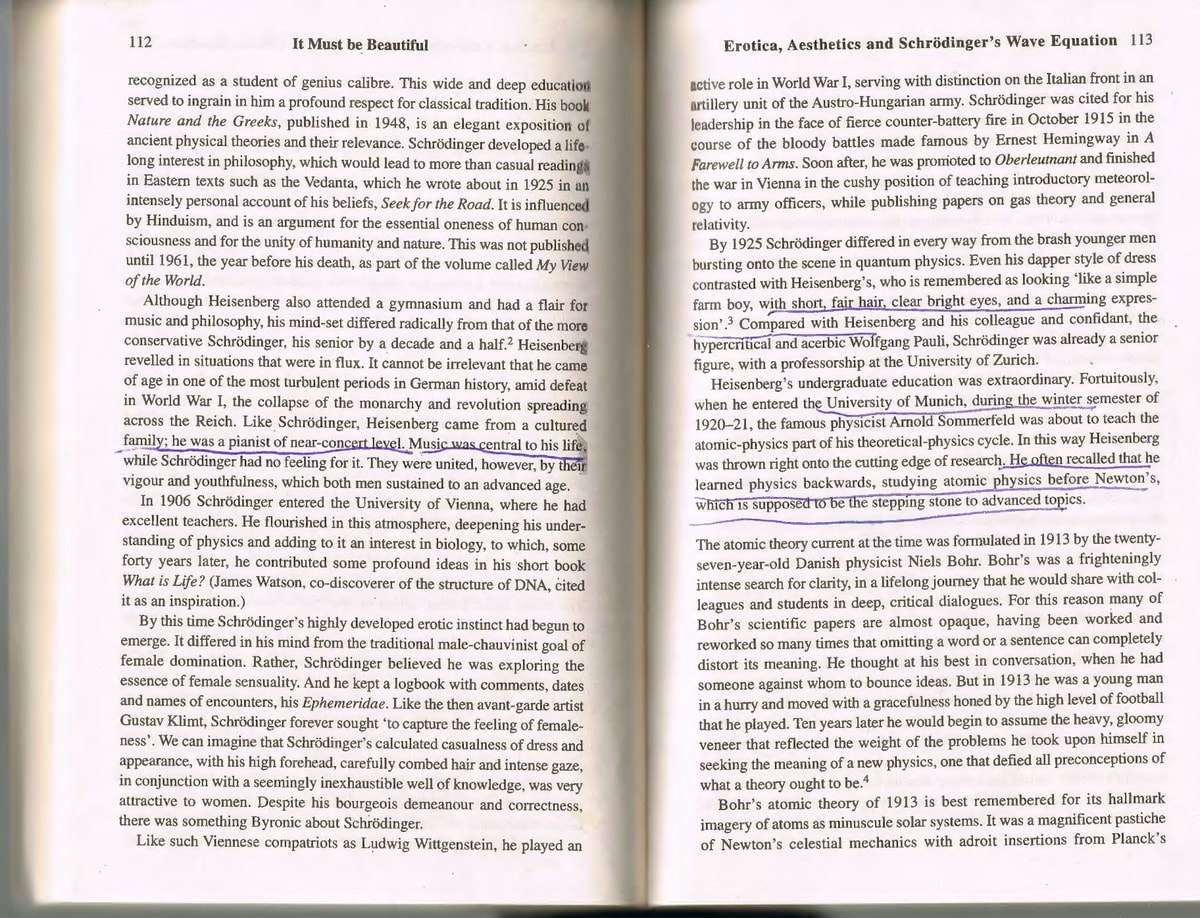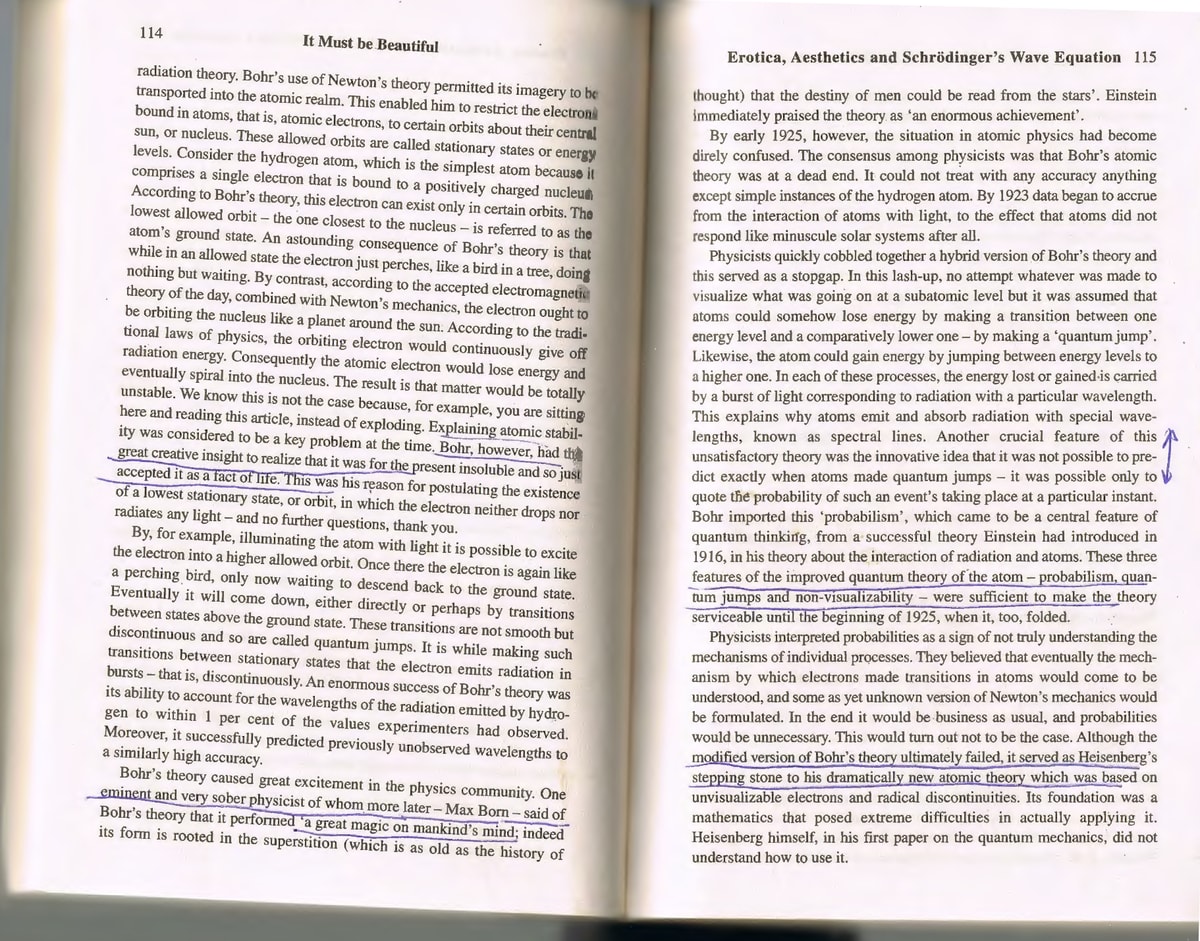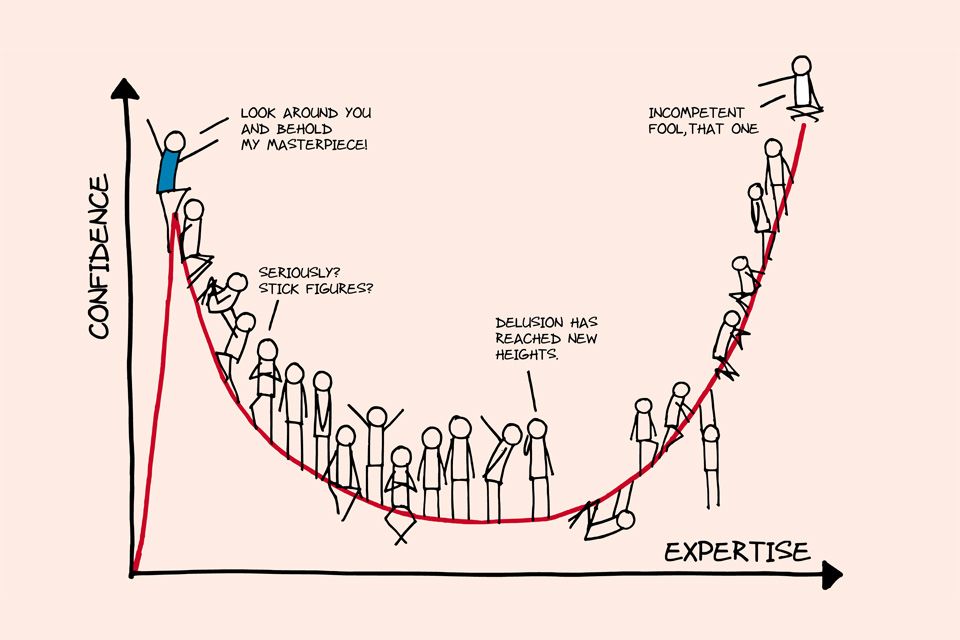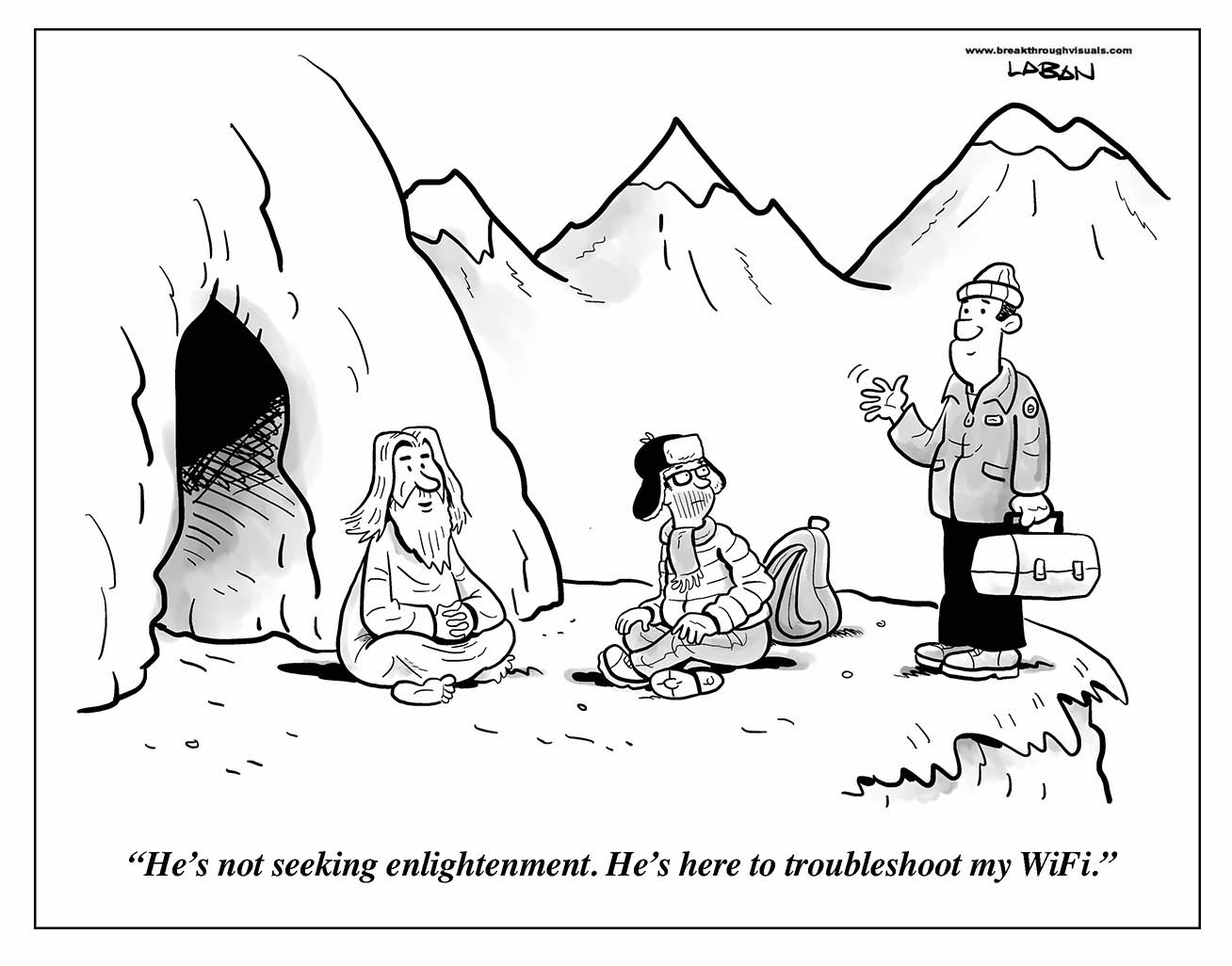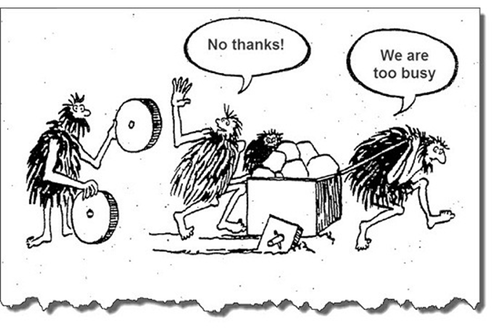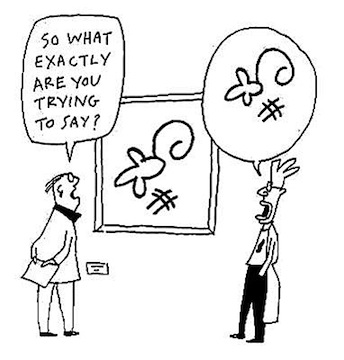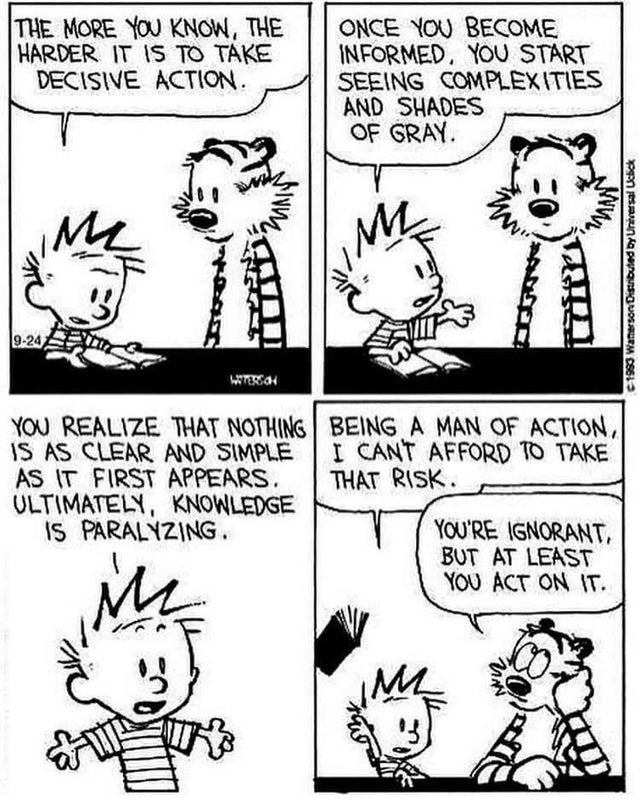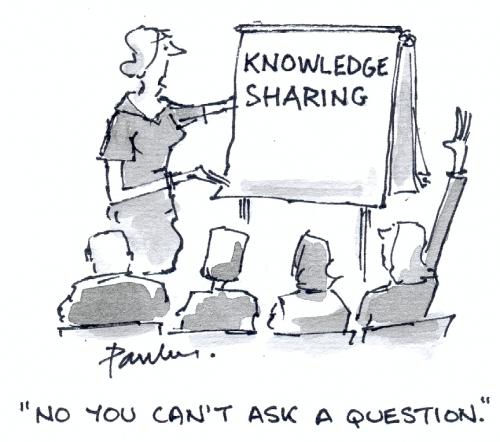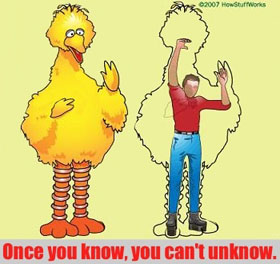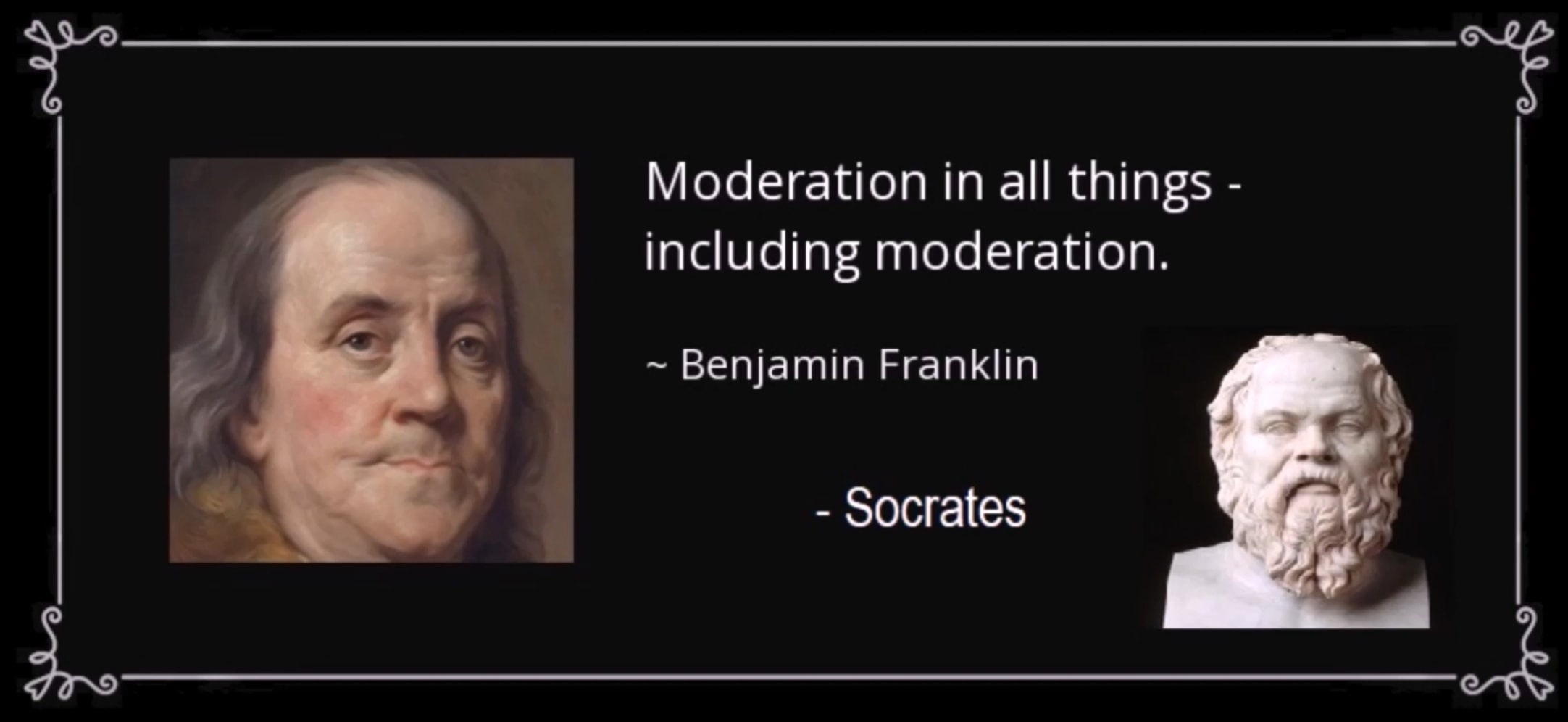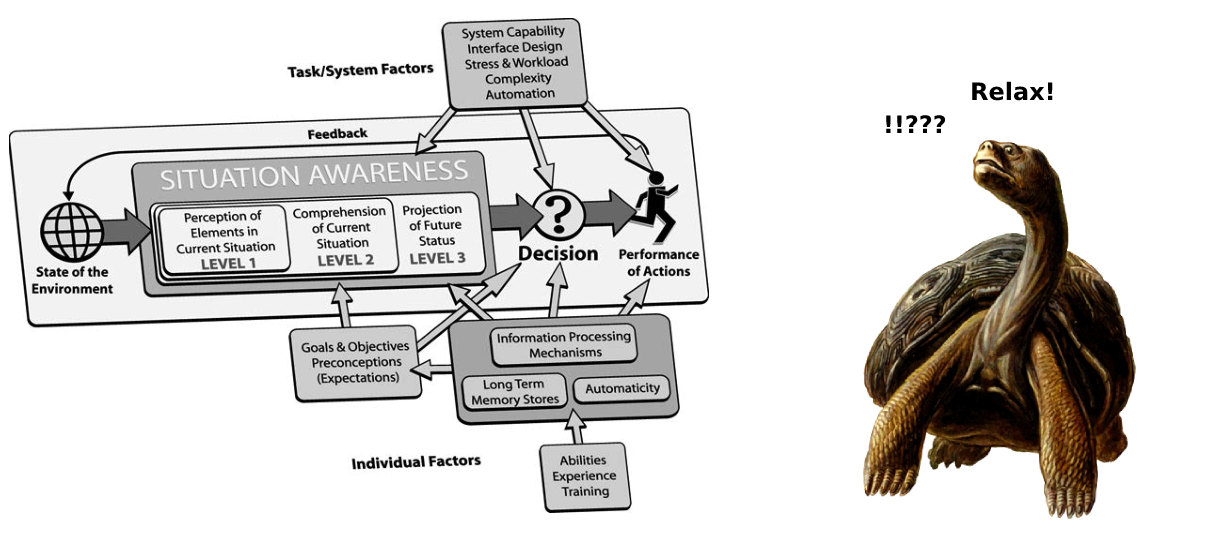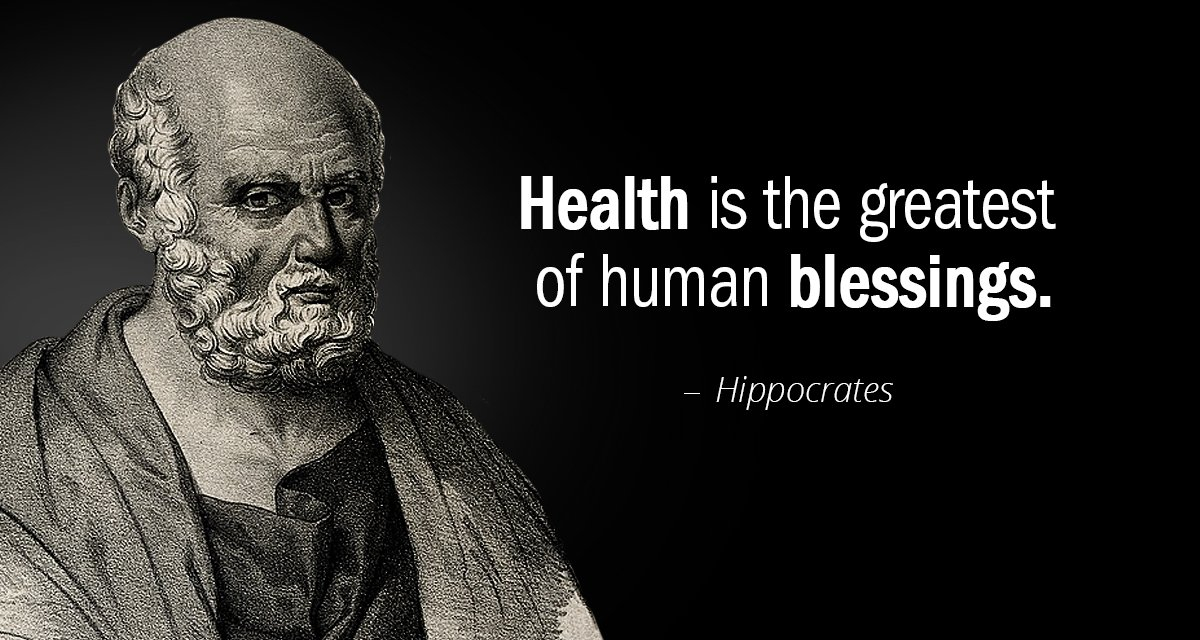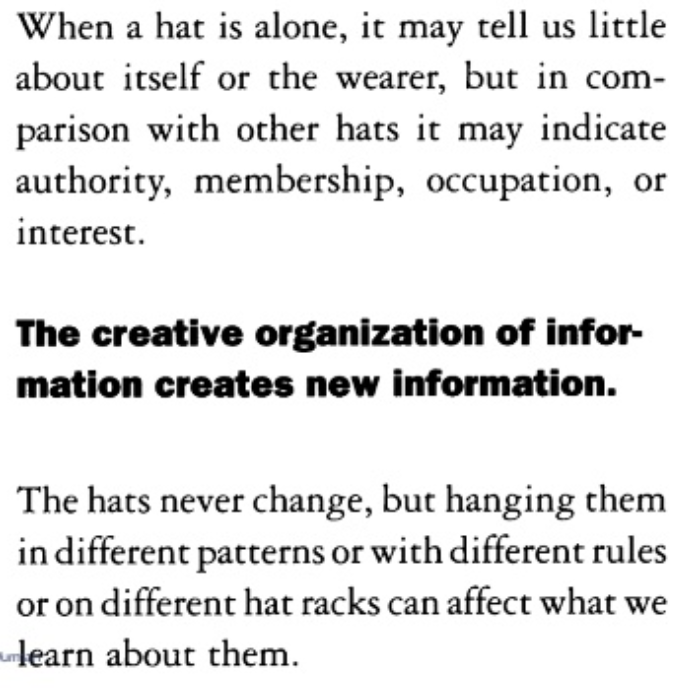tag > KM
-
"The greatest challenge of science, its art, lies in asking an important question and framing it in a way that allows it to be broken into manageable pieces, into experiments that can be conducted that ultimately lead to answers. To do this requires a certain kind of genius, one that probes vertically and sees horizontally." - John M.Barry - The Great Influenza (p. 60)
-
Psychedelic Learning - by Julian Vayne
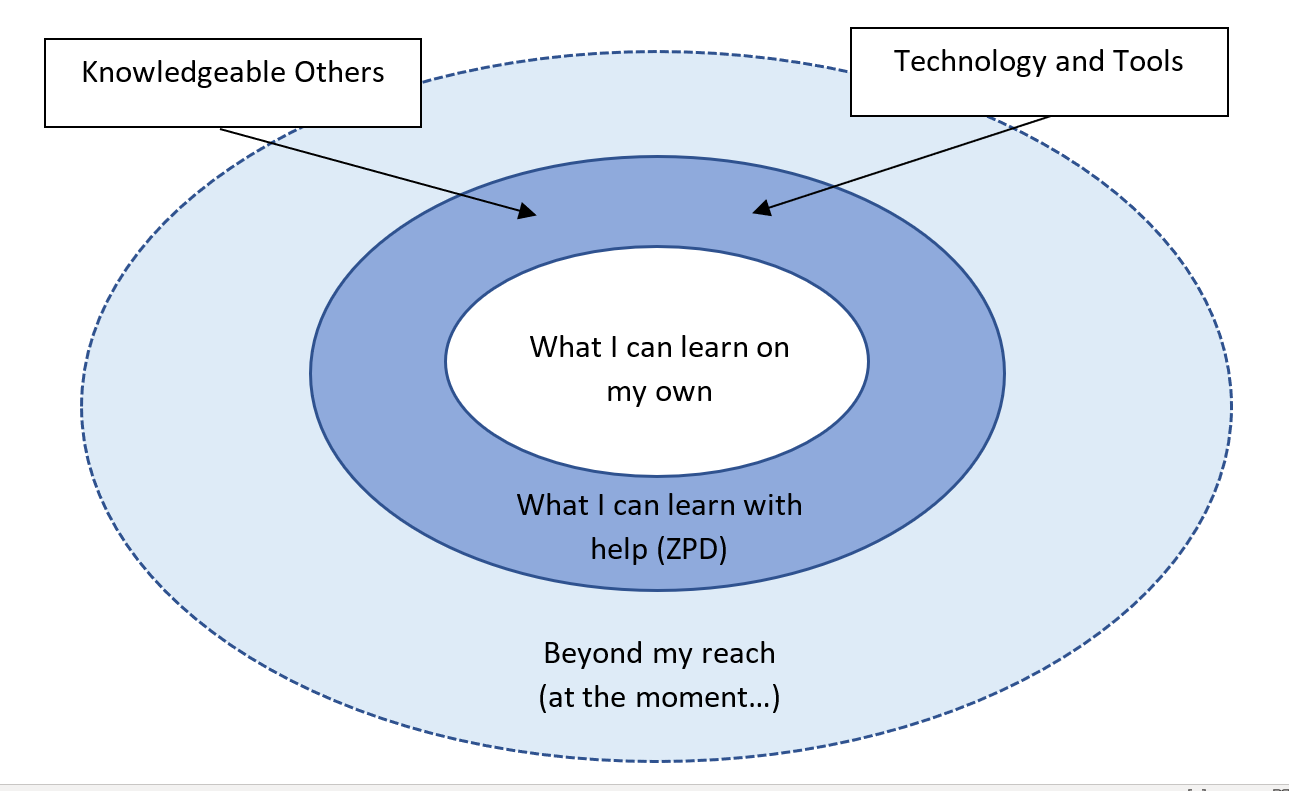
"Magic is a set of techniques and approaches which can be used to extend the limits of Achievable Reality. Our sense of Achievable Reality is the limitations which we believe bind us into a narrow range of actions and successes—what we believe to be possible for us at any one given time. In this context, the purpose of magic is to simultaneously explore the boundaries and attempt to push them back—to widen the “sphere” of possible action." - Phil Hine in Condensed Chaos
-
"You'd think a top scientist would have realised - on the evidence of COPs 01-25 - that telling leaders what they 'must' do is like - well, telling the captain of the Titanic to drive carefully, old boy. Climate scientists badly need a new theory of change." - @johnthackara
-
"Praxis is a problem solving method" (Duncan-Andrade & Morrell, 2008)
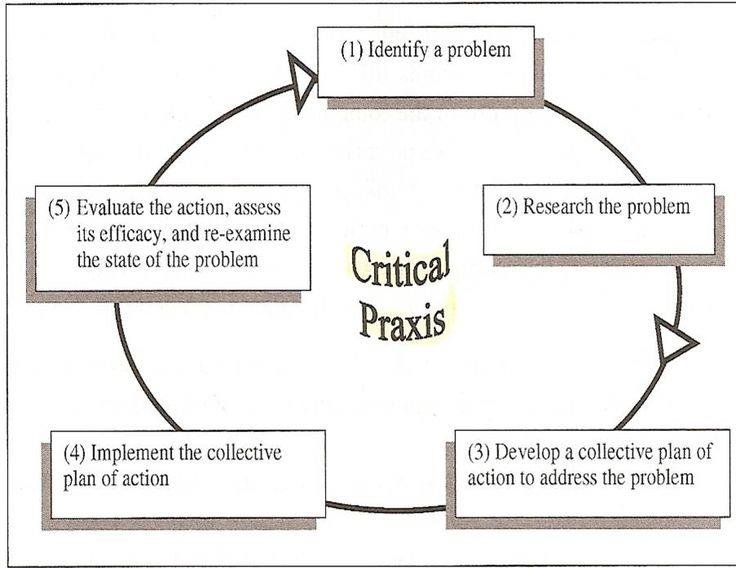
-
The four pillars of too much - by Sketchplanations (too much stuff, choice, info and too fast)
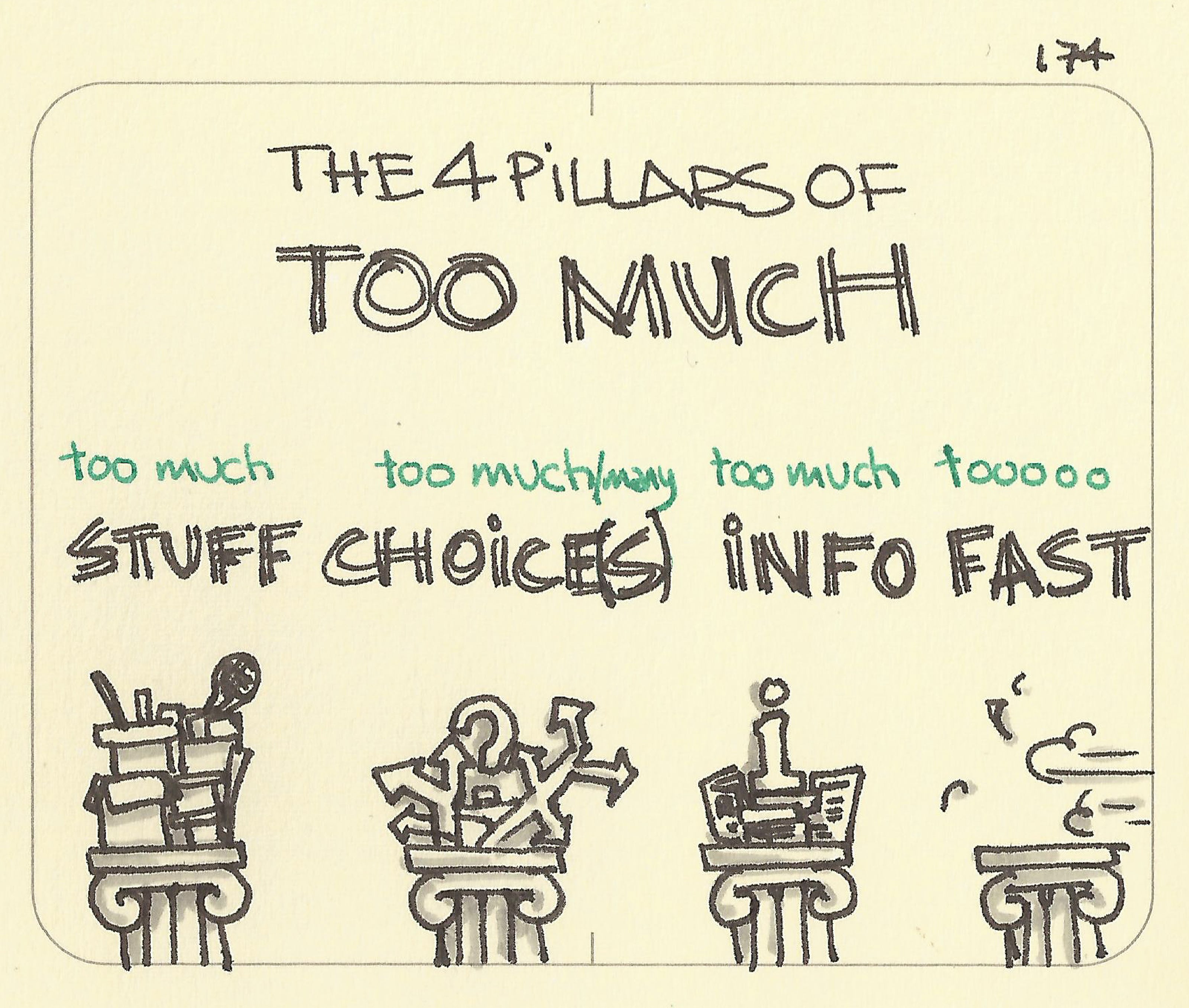
-
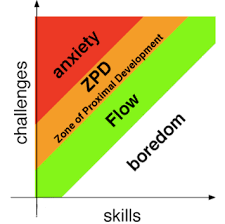
The zone of proximal development (ZPD), is best understood as the zone of the closest, most immediate psychological development of learners that includes a wide range of their emotional, cognitive, and volitional psychological processes. In contemporary educational research and practice, though, it is often interpreted as the distance between what a learner can do without help, and what they can do with support from someone with more knowledge or expertise ("more knowledgeable other"). The concept was introduced, but not fully developed, by psychologist Lev Vygotsky (1896–1934) during the last three years of his life.
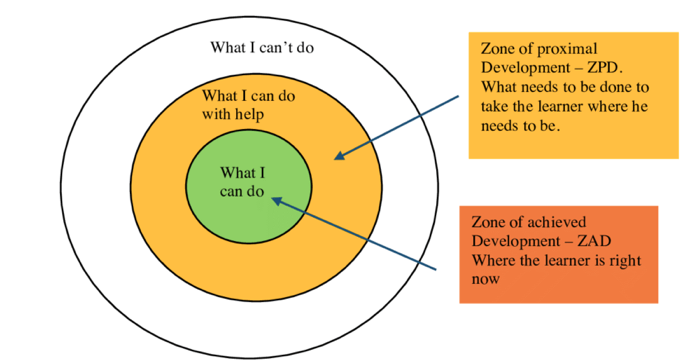
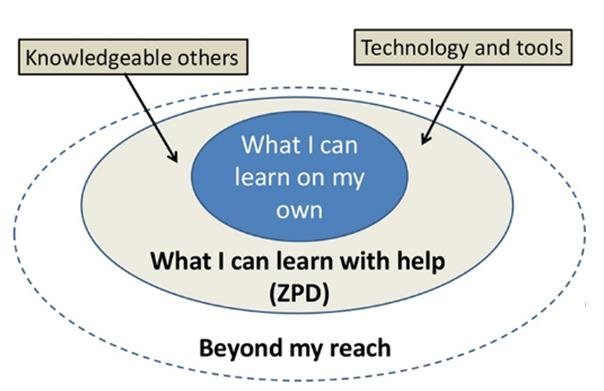
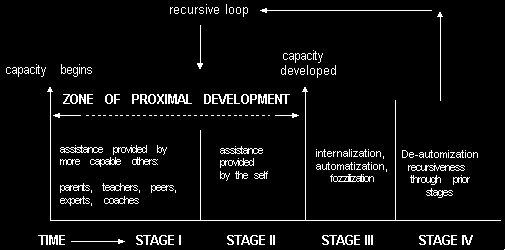
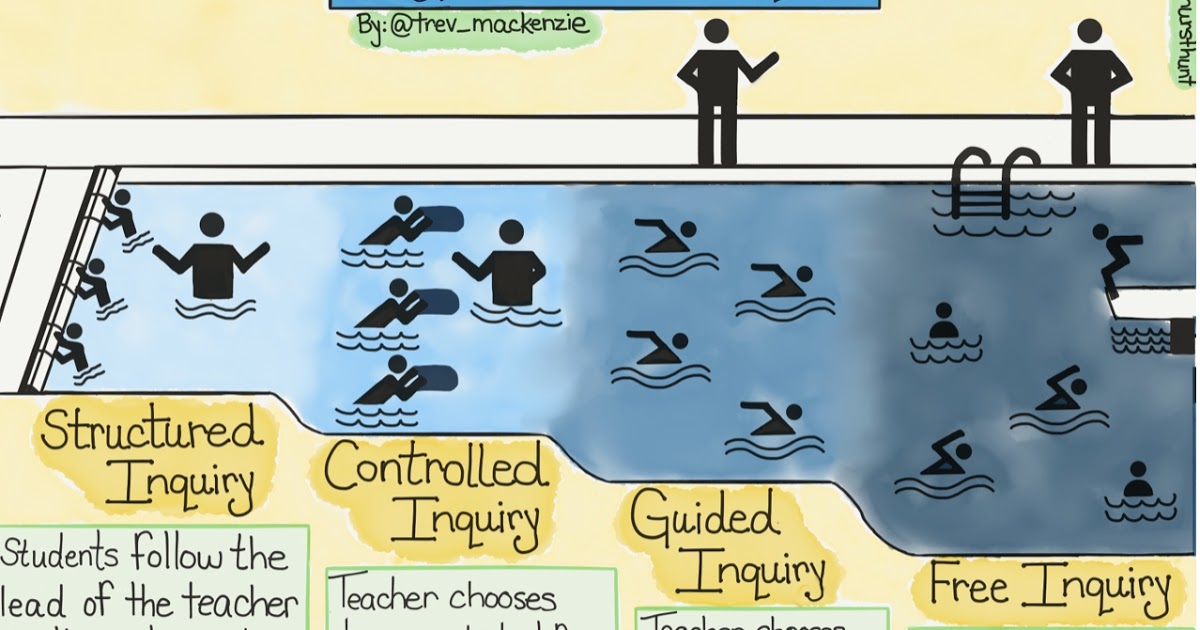
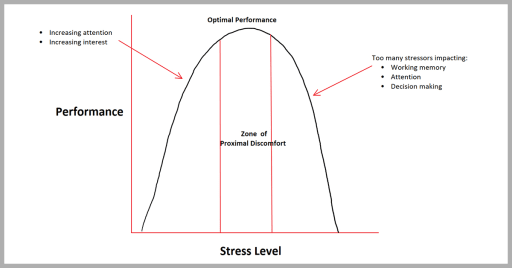
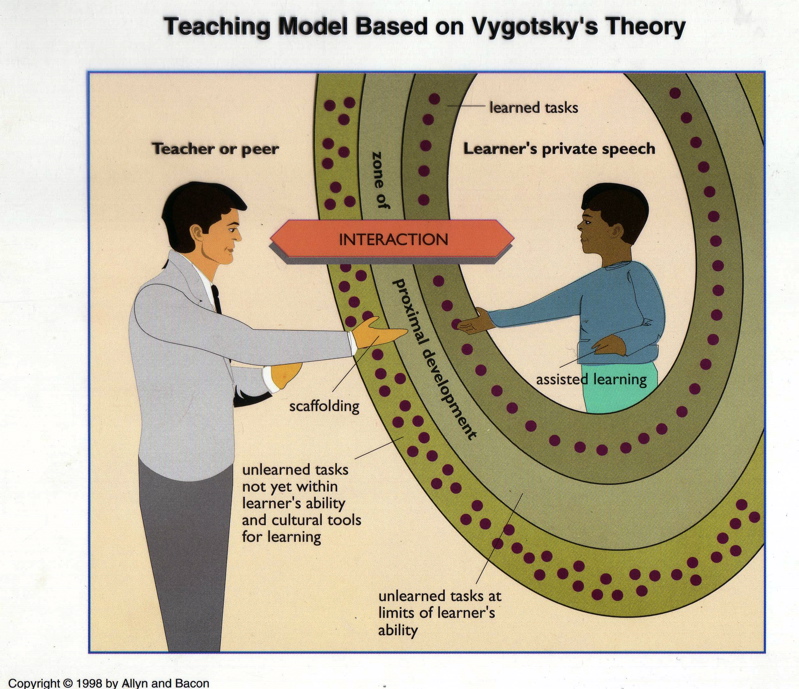
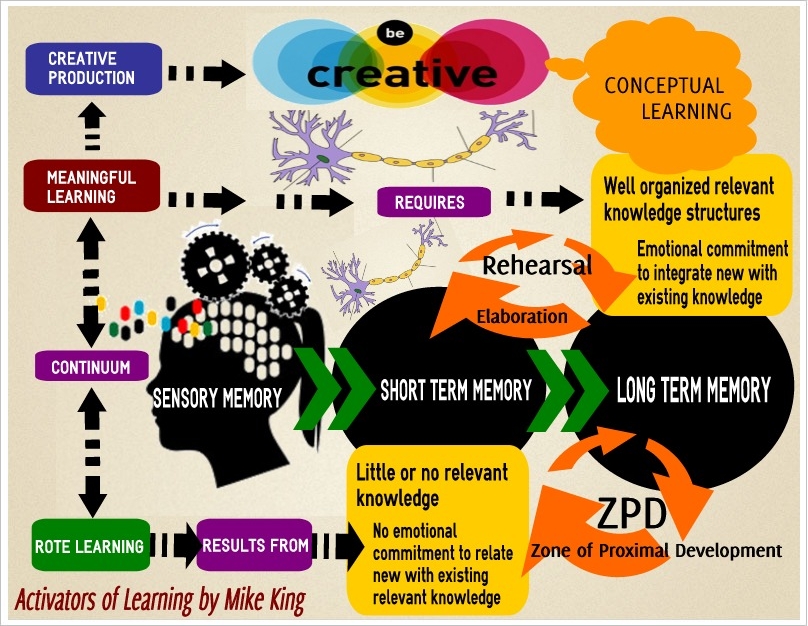
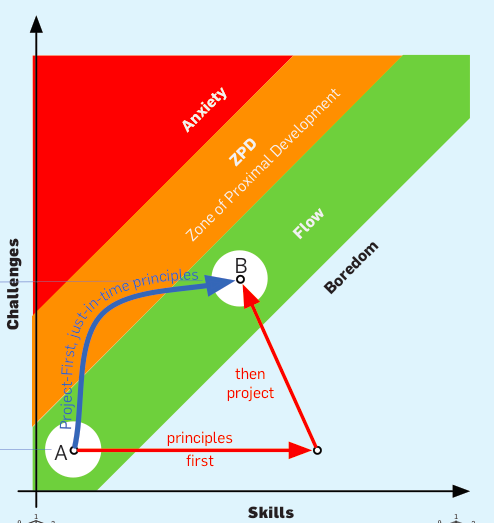
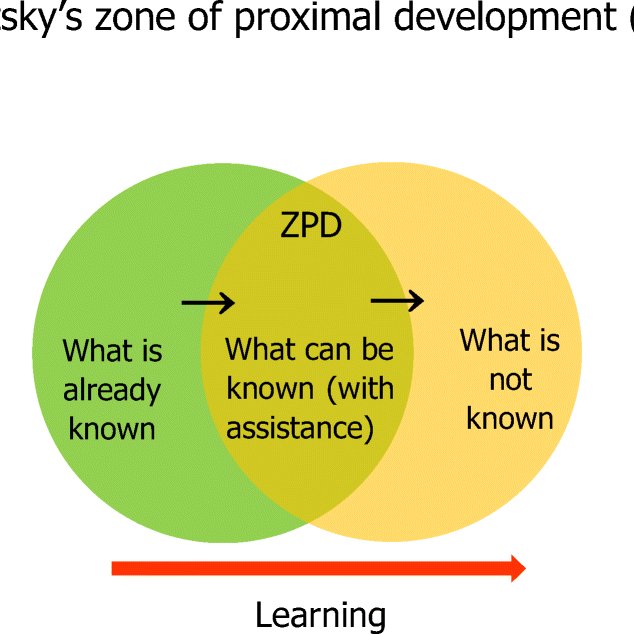
Related
-

The curse of knowledge is a cognitive bias that occurs when an individual, communicating with other individuals, unknowingly assumes that the others have the background to understand. The more you know about a subject, the harder it becomes to communicate your knowledge to someone who knows nothing about the topic.
-
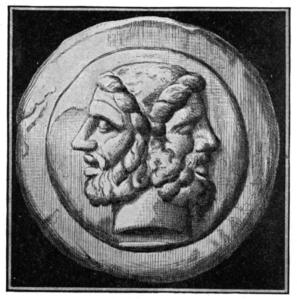
Janusian thinking is the ability to imagine two opposites or contradictory ideas, concepts, or images existing simultaneously. Imagine, if you will, your mother existing as a young baby and old woman simultaneously, or your pet existing and not existing at the same time.
Psychology 1508: Janusian Thinking (Presentation)
-
David Bohm on Problems
"Thought is constantly creating problems that way and then trying to solve them. But as it tries to solve them it makes it worse because it doesn't notice that it's creating them, and the more it thinks, the more problems it creates." - David Bohm (read more...)
David Bohm on Theory
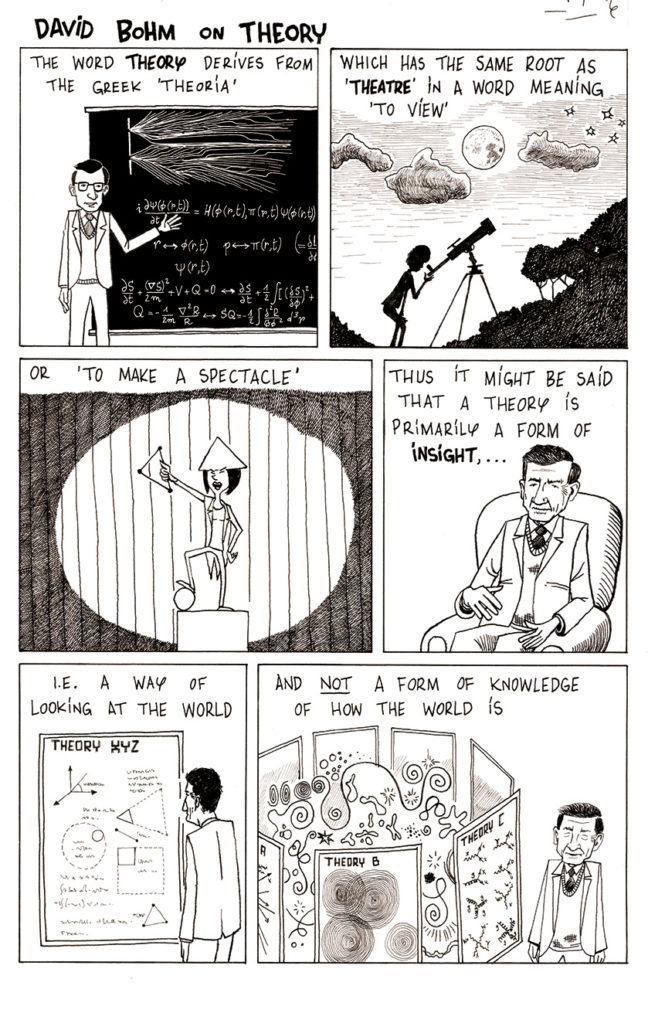
-
Tsurezuregusa (徒然草, Essays in Idleness) - collection of essays written by the Japanese monk Yoshida Kenkō between 1330 and 1332.

“It is typical of the unintelligent man to insist on assembling complete sets of everything. Imperfect sets are better.”
“If man were never to fade away like the dews of Adashino, never to vanish like the smoke over Toribeyama, but lingered on forever in this world, how things would lose their power to move us! The most precious thing in life is its uncertainty.”
-
Erotica, Aesthetics and Schrodingers Wave Equation - by Arthur I. Miller (PDF)
"Like a great work of literature, quantum theory is open to many different interpretations."
